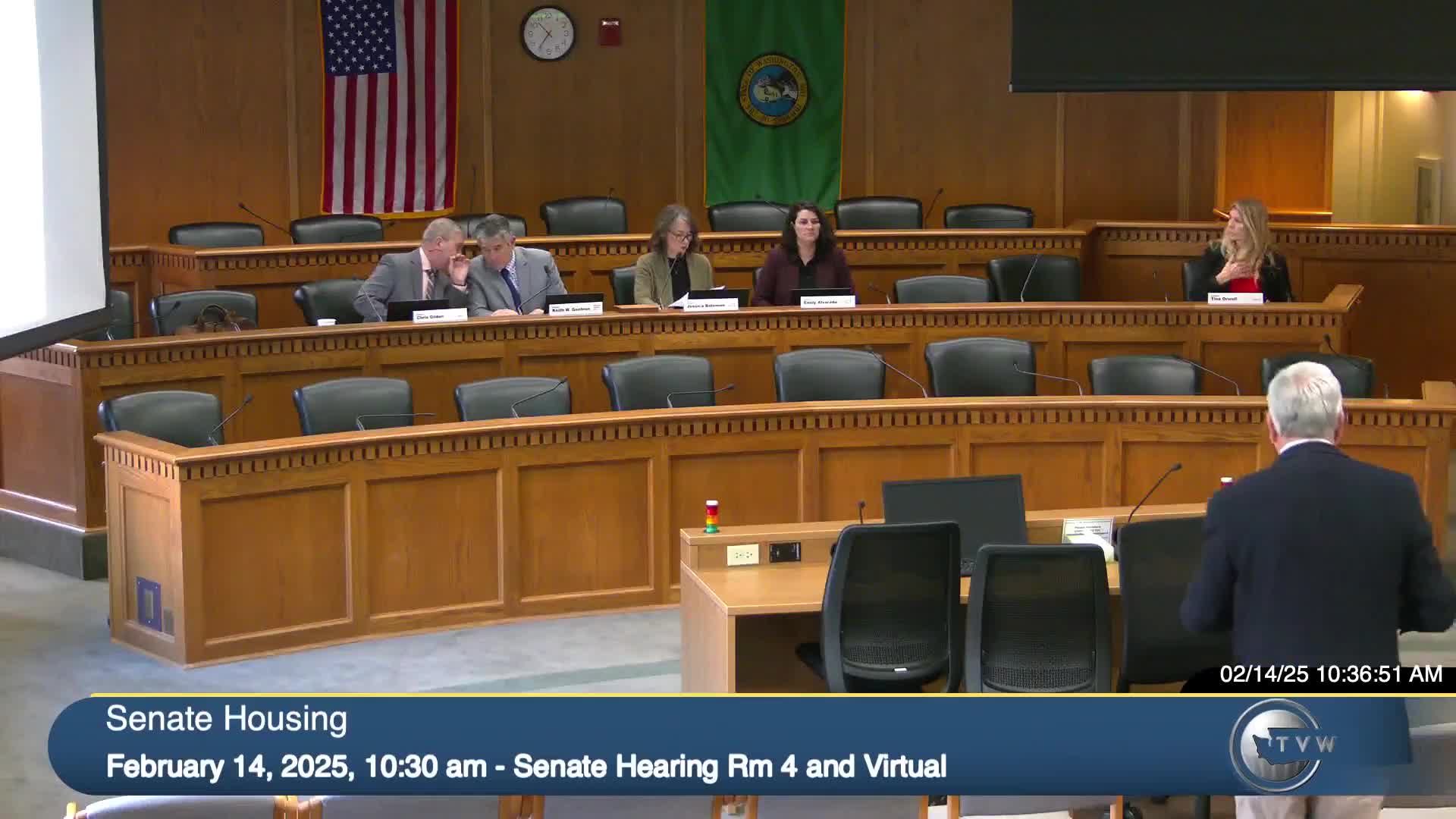Bill to create landlord‑tenant task force and freeze local tenant ordinances draws mixed reaction
Get AI-powered insights, summaries, and transcripts
Subscribe
Summary
SB 5,678 would form a 17‑member task force to study the Residential Landlord Tenant Act and impose a 36‑month moratorium on new local landlord‑tenant rules. Industry groups backed the bill’s collaborative review; tenant advocates, cities and legal aid groups opposed the moratorium and warned it would strip local protections.
Senate Bill 5,678, which would create a 17‑member task force to study the Residential Landlord‑Tenant Act (RLTA) and impose a 36‑month moratorium on new local ordinances regulating landlord‑tenant relations, drew sharply divided testimony in the Senate Housing Committee.
Bill Fosbury, committee staff, briefed members that the task force would include two senators, two representatives and 13 members from housing providers, tenant legal aid, tenant organizations representing historically underserved populations, public housing authorities, the Association of Washington Cities, the Superior Court Judges Association and the Department of Commerce. The task force would report recommendations by July 1, 2027, and the moratorium would prohibit counties, cities and towns from enacting new ordinances regulating the landlord‑tenant relationship for 36 months.
Prime sponsor Senator Billig Dozier said the intent is to examine the “both sides of the coin” — tenants and landlords — and seek balanced, evidence‑based changes. “I think this task force can address both sides of that coin that I talk about to look at benefits for both tenants and landlords,” Dozier said.
Proponents — including the Rental Housing Association, multifamily housing interests and small landlords — told the committee the moratorium would create regulatory stability while a broad stakeholder group reviews and proposes updates. Carter Nelson of the Washington Multifamily Housing Association said the task force would advance “evidence‑based policy solutions” and reduce inconsistent local regulations.
Opponents described the moratorium as an overbroad preemption of local authority. Sarah Nagy of Columbia Legal Services said local ordinances provide health and habitability protections RLTA does not and said a three‑year freeze would “prevent [jurisdictions] from managing the particular impacts of the rental markets within their borders.” The Seattle King County Coalition on Homelessness warned the moratorium would hinder local responses tailored to urban homelessness.
Critics also objected to the task force composition and said an unelected body should not have the practical effect of blocking local rulemaking. Several local officials and tenant advocates urged that local governments must be able to pass targeted protections — for example, to preserve manufactured‑housing communities or address local inspection and habitability needs.
Committee members questioned whether a moratorium would delay urgent protections and asked whether major recent statewide reforms should be allowed time to take effect. Supporters replied that many recent laws need operational time to be evaluated and that collaboration among stakeholders would produce better long‑term outcomes.
No committee vote occurred. Testimony made clear the issue remains politically fraught and that whether the committee advances a moratorium tied to a task force will hinge on further negotiation over membership, scope and exceptions for local health and safety measures.
